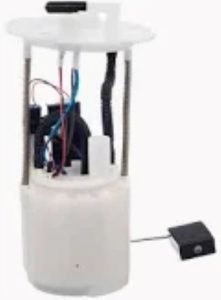In order for a fuel pump to ground correctly, one has to measure electrical resistance of the ground using not only a multimeter. Optimal grounding system has to be guaranteed and with a resistance value of less or equal than 0.2 ohms. For grounding, make sure that the voltage and current conforms to industry standards or custom requirements; you are generally looking at 10 or 12 AWG (specifics will vary based upon pump load) that could pull anywhere from around 5 to 10 local amperes. Incorrect wire gauge can result in voltage drop, cut the pumps output as much as 15%
One looked-over culprit of fuel pump failure that is fairly common in the automotive world are grounding issues. In 2016 for example, Ford moved to recall numerous models of its vehicles because an insufficient ground fault created trouble with the pumps not working. Many experts advise connecting the ground wire straight to the chassis or engine block of a car in order to remove the resistance pathway. The connection point has to be clean, you have probably thought of this earlier; rust, dirt or paint will increase resistance by 30 %.
As Thomas Edison put it, 'Genius is 1% inspiration and 99% perspiration. And the same applies well here. This reengagement should help prevent fuel pump failures, which is good because the average lifespan of a fuel pump is around 100,000 miles when they have been properly maintained.

To put in perspective whether or not good grounding matters, according to O'Reilly Auto Parts poor grounding can increase fuel pump failure rates by 20%, which means more repair cost and down time for your personal passenger vehicle and commercial fleet vehicles. For example, a fleet management business might suddenly bear much higher maintenance costs if the fuel pumps in several vehicles go bad at once.
In areas of high humidity or rainfall (corrosion-promoting conditions), every fuel pump ground should be checked at least once per year to insure peak performance. A fuel pump that is not well grounded will have low pressure, so the engine may misfire and also stall. Often times a new pump end will cost you $300 to $700 that could have been avoided if some periodic checking of your ground was done.
Tips: For how to ground your fuel pump, a good resource for picking up the correct parts and accessories to use with grounding, visit Fuel Pump. Following these steps helps your car to be able to run without unexpected fuel delivery problems.